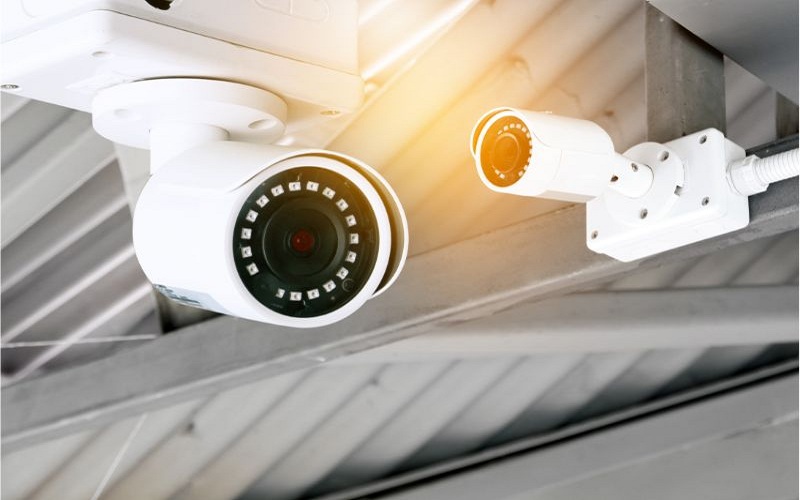
It’s critical to ascertain the main objective of the CCTV system before installation. Is your goal to keep an eye on a certain region for security reasons, or do you require a system to log actions for operational or legal reasons? Numerous additional considerations, such as the kind of cameras needed, where to put them, and what kind of recording capacity they need, will be influenced by the planned usage of the CCTV system.
Placement of the Camera and Coverage Area
Determine any blind spots or barriers that can impair camera coverage when you assess the area you wish to monitor. Take into account the necessary field of vision for every camera and make sure that they are positioned to offer the best coverage possible while not violating any privacy laws or regulations.
Cameras: Inside versus Outside
Ascertain if you require outdoor, interior, or a combination of both kinds of cameras. Outdoor cameras must be resistant to weather and tough environments, but indoor cameras could need special characteristics like low light or night vision.
Types and Specifications of Cameras
PTZ (Pan-Tilt-Zoom) cameras, dome, bullet, and concealed cameras are among the different varieties of CCTV cameras. cctv camera installation and services of its own and works better in particular situations. To make sure the cameras fulfill your needs, take into account aspects like resolution, frame rate, night vision capabilities, and lens selections.
Wireless vs. Wired Systems
Determine whether a wireless or wired CCTV system will work better for you. Although they require more substantial wiring, wired systems offer a more reliable and secure connection; on the other hand, wireless systems offer greater flexibility but may be more vulnerable to interference or signal loss.
Option for Recording and Storing
Choose your preferred method for accessing and storing the captured video. Cloud-based storage, network video recorders (NVRs) digital video recorders (DVRs) for on-site storage, or a mix of both, are available options. When selecting a recording option, take accessibility, retention durations, and storage capacity into account.
Connectivity with Different Systems
Consider whether it is necessary to combine the CCTV system with building automation,alarm device or access control systems, among other security systems. A more complete security solution and operational efficiency can be achieved through proper integration.
Financial Factors
The cost of CCTV systems concerning the extent of cameras, type of technology, degree of storage space, and the complexity of installation can be quite manageable and can vary significantly with the variations in these factors. Establish a budget that realistically accounts for the initial installation cost, running expenditures, and maintenance expenses.
Selecting the Appropriate CCTV System is as mentioned.
Image quality and camera resolutions
The degree of clarity and information captured in the video footage of a CCTV camera is determined by its resolution. Sharper images and the capacity to zoom in without noticeably sacrificing clarity are provided by higher resolutions, like 4K or even 8K. larger resolutions, nevertheless, also come with a larger bandwidth and storage cost.
Privacy and Privacy Preservation Rules Laws
Be aware of any privacy guidelines on the job that could include rules and regulations associated with the setting and operating of CCTV systems at the level of municipal, state, or federal government. If you undertake fundraising activity, make sure to consult officials or specialist attorneys to ensure that all the requirements are met and avoid legal issues.
Upkeep and Modernization
Maintaining your CCTV system at optimal performance requires routine maintenance, which includes wiping out camera lenses, inspecting connections, and updating software. Furthermore, to benefit from new features and capabilities as technology develops, you might need to upgrade certain parts of the system or the whole thing.
Prisoners’ Rights Advocacy through Granting Remote Access and Integrating CCTV.
A more capable security solution could be developed by tying CCTVs in the same fashion as the other security systems, such as alarms or access control systems. The fact that anybody with access rights can see the recordings from any space in real-time or even later on from a desktop PC, smartphone, or tablet is another function that an increasing number of IP CCTV surveillance systems deliver.
The Bathing Away process involves the careful examination of a person’s eyes under different light conditions, including dark, low light, bright light, and dim light.
In the heaps of CCTV cameras, those who can afford to take pictures of dark or dimly lit areas because of incorporated night vision ability are also found. The usual approach for night vision technologies is adding extra light sensitivity to the image sensor to enhance available light and also infrared light, which is invisible to the visible spectrum.
Transmission: Wired versus Wireless
The latest-generation CCTV system can be used to send data and video by a wireless network or by a connection (including Ethernet cable). Cable-based systems offer more reliability and security but can be less convenient as well as vulnerable to interference or signal loss, while wireless systems demand more flexibility, but may suffer from interference or signal loss.
Expert Configuration and Installation
The heart of a cctv camera and installation and configuration, and there is no alternative. So we recommend you work with experienced specialists who can make an appraisal of your individual needs, construct the system’s architecture, and then ensure that the setup and configuration are accurate.
Legal and Privacy Considerations
Privacy standards and laws must be considered to ensure the system’s legality when inventing a CCTV system. It could be offering controllers placards of some sort that warn about the existence of cameras, to stay out of areas of privacy, and carefully handle recorded video.
Conclusion
The features and the capacity of various camera types and system configurations along with their fees and unique requirements must be fully addressed for you to choose the best for your CCTV system. The area to be monitored should be defined by size and configuration of the area, and the need for rate and accuracy of the image, as well as any special environmental conditions and difficulties, should all be taken into account.
There is the comfort of knowing that the particular CCTV system you need will meet your security and surveillance mandate so evaluate your needs and the available options well. The CCTV system should handle, provide, and support your coverage, performance, and functionality needs

